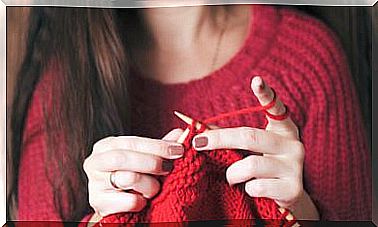How To Resolve Conflicts With Others?

No one is exempt from having conflicts with others, no matter how hard he tries to get rid of them. But they can be a good opportunity to learn and grow personally. Although it may seem impossible, it is just a matter of trying and starting to change the way we see what happens.
Conflicts are “the bread and butter” at any age, regardless of nationality, religion or political idea. We have conflicts with our partner, with our children, with work, with friends, with money…. and the list goes on.
Flexibility helps you negotiate conflicts with others
In most cases, the problems or discussions arise because we are not able to “give the arm to twist” or to put ourselves in the place of the other. We lock ourselves in our point of view and we are not willing to give an iota on what we like or want.

According to several psychology professionals, a large percentage of conflicts are produced by the inability to find a common ground or by not wanting to accept the ideas of the other, and not by the difference in criteria or tastes.
Now, is it always a negative thing when there are conflicts? Of course not! It all depends on how we use them to our advantage. A problem can also be the engine that promotes a reason for learning or for change in our way of acting.
For this, it is necessary that we develop a capacity: cognitive or mental flexibility . It is a capacity that will allow us to see other horizons. To be flexible is to be open to other visions.
This flexibility will allow us to be understanding in relation to the ideas and points of view of others, warning us that there are other alternatives different from ours. This in the business world is called “win-win” (win-win), because everyone involved takes something of what they were looking for or waiting for.
Therefore, having conflicts with others can also help us to know other perspectives or angles from which to analyze a situation. It will help us to improve our social skills, in communication with those around us and it will be an excellent job for our mind. But how can we resolve those conflicts?
Value the opinion of others, it will give you other visions
First of all, you need to recognize and value what other people say. Not everything in life is what you think, feel or believe. Those around you have their own thoughts, feelings and beliefs and they are just as valid as yours. Neither is better or worse, they are just different.
It never hurts to “put yourself in someone else’s shoes”, so you can see from a different perspective than the one you are used to and have the opportunity to determine (together) which is the best option to continue.
Since we are little they teach us to see the world from a concrete perspective. As we mature we build our own theories about life and what surrounds us. The problem lies when we take our point of view as true, real and non-negotiable. We cling to an ironclad opinion about reality and nothing and no one is able to move us from there.
However, what happens is that we are losing the opportunity to learn from others. A rigid position is detrimental to learning and enriching ourselves from those around us. Deep down there is a great insecurity, which is why we need to stick to an idea. By identifying with a way of thinking, we feel more protected, more supported. We feel more secure when we place ourselves in a specific position. For this reason, for many people there is only “white or black”, without the possibility of a range of gray or even the rest of the colors.

Control your emotions, it will allow you to focus on conflicts
It is important that you control your emotions. If you are not too used to giving in and you are very attached to your ideas, it is time for you to start putting “cold cloths” on your feelings.
When we confront someone because of a misunderstanding or a point of view different from ours, it is very easy to get irritated, unable to focus and even hurt whoever is in front of us (with words we can leave deeper scars than with weapons or blows).
If you have a hard time not getting angry at conflict, you can find techniques that help you decrease your impulsiveness, such as drinking a glass of water, taking a few deep breaths, counting to a hundred, leaving the room or taking a walk.
Try one of these options and restart the conversation when emotions are calmer. This will make it easier to find a solution to those conflicts with others.
And finally, it is good that you maintain a positive attitude, open to dialogue and changes. If you lock yourself in your shield, armor or shell, it will be more difficult for someone to enter or for you to leave.
Avoid closing yourself, open yourself. Do not be defensive and maintain an attitude of inclusion, you can learn a lot by listening to the ideas of others! Try not to dismiss them just because they are different from yours!









